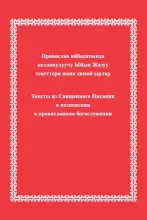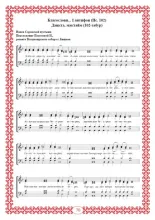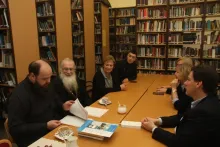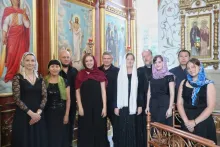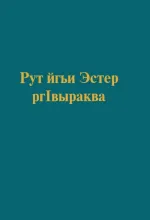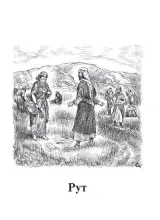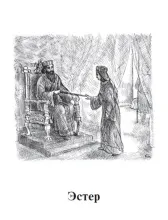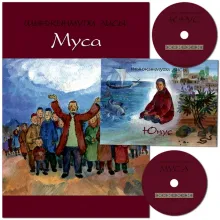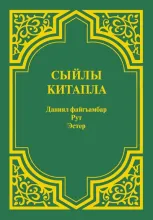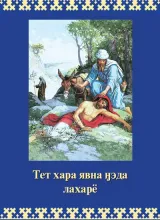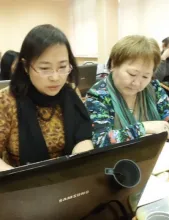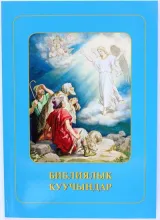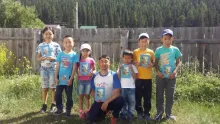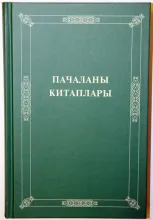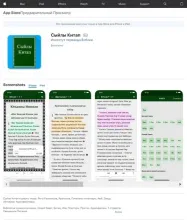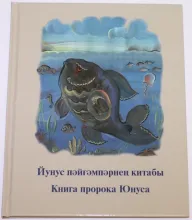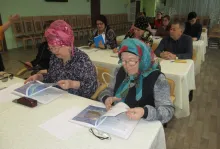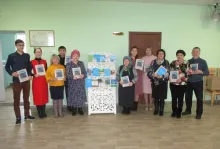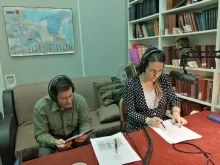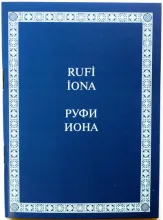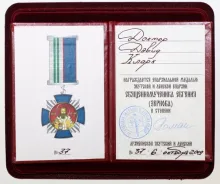news-04062020
IBT has published a unique collection of Orthodox liturgical texts in the Kyrgyz language, including musical notation for performance. This is IBT’s first-ever publication of this kind. Most of the 1,000 copies printed will go to the Kyrgyz diocese of the Russian Orthodox Church in Bishkek, since this edition was produced in response to a request of Bishop Daniel of the Kyrgyz diocese. Translation of liturgical texts, which are designed for communal singing to melodies well known in the Orthodox world, demanded that the translation team acquire a completely new set of skills. Special attention had to be paid not only to accuracy in the translation, but also to sound collocations and rhythmic patterns...
news-05062020
IBT is pleased to announce that the Old Testament books of Ruth and Esther have been published in the Abaza language in a single edition. The first IBT publication in Abaza came out in 2019 – an illustrated translation of the book of Jonah, with a parallel Russian translation.
The Abaza language belongs to the Abkhaz-Abaza branch of the Abkhaz-Adyge group of Caucasian languages. L.I. Lavrov, one of the first researchers of the history of the Abaza people, notes that they were once a large people, with their own centuries-old history. Scholars believe that the Abaza and Abkhaz languages...
news-25052020
The Institute for Bible Translation has just expanded its Dungan-language Stories of the Prophets series with two publications that tell the stories of Moses and Jonah. This series relates the Biblical narratives about the greatest prophets that are revered by Jews, Christians, and Muslims alike.
The first installment of the series, Noah, appeared in 2016, followed by the stories of Abraham and Joseph in 2019. The Dungan stories are accompanied by a parallel Russian text and colorful illustrations produced by the talented Dungan artist Khalida Shimova. The biblical characters in these stories appear just as the Dungan reader would imagine them, in their own cultural environment and dressed in their traditional clothing. To aid the reading experience, each book is accompanied by an audio CD with a Dungan recording of the text. This is available on the IBT website in the audio recordings section.
news-270420
IBT is continuing to publish online editions of our new translations even as we wait for printing-houses to open up once the covid-19 quarantine ends. The latest of these editions is the Balkar version of the Old Testament books of Ruth, Esther and Daniel.
The Turkic-language Balkars constitute about 10% of the population of Kabardino-Balkaria in the North Caucasus area of the Russian Federation. Together with the closely related Karachay people, there are about 300,000 speakers of this language in Russia.
news-120420
Speakers of the Nenets language are already familiar with the Institute for Bible Translation's prior publications, such as Stories About Jesus (2003, 2011), the Gospel of Luke (2004), the Gospel of Mark (2010), the Gospel of John (2014), and the Gospel of Matthew (2018). The newest addition to this list is IBT’s illustrated publication of Gospel Parables.
Despite the coronavirus quarantine, the Nenets do not have to wait for the printing houses to resume their work and for this new book to be delivered to their cities. Why? Because Gospel Parables is being made available online from the very beginning. It can already be downloaded as a PDF file from IBT's electronic publications page. In the near future the audio recording of the book will also be made available...
news-170320
The Institute for Bible Translation has recently published Bible Stories in the Altai language. Earlier publications in this language include the 1910 edition of the Four Gospels (reprinted by IBT in 1975); the Gospel of Mark (1996); Jesus, Friend of Children (1997); the Gospel of Luke and Acts (1999); the Children's Bible (2002); the New Testament (2003); and the New Testament (2nd edition, bilingual, 2017).
In order to help Altai readers access Bible Stories, the Institute has also produced an audio recording of the text, which in the near future will be available for download in the audio section of the IBT website. One can already find the PDF version of the book in the electronic publications section. An Android application with this illustrated book, as well as the audio recording and a parallel Russian text, is also being developed.
news-0503220
IBT has recently published 1-2 Samuel and 1-2 Kings as a single edition in the Kumyk language of Dagestan. Kumyk is the largest Turkic language of the N. Caucasus, with more than 500,000 Kumyks living in Russia (according to the 2010 census).
The Kumyk translation team is continuing to work on the rest of the Old Testament, with current work in progress on several of the Minor Prophets. The next publication in the Kumyk project is expected to be the Pentateuch in 2021.
news-2601220
The Institute for Bible Translation has translated and published the first book of the Bible ever produced in the Siberian Tatar language, the book of Jonah from the Old Testament. According to the Ethnologue, Siberian Tatar is an endangered language, spoken by approximately 100,000 people. It is widespread in the central Siberian regions of Omsk, Tyumen, Novosibirsk, Kemerovo, Kurgan and Sverdlovsk.
news-201219
The book of Ruth in the Gagauz language was recorded by IBT staff members at IBT’s Moscow office on December 18. The reading was performed by Tatyana Kyrboba-Marin. The Gagauz book of Ruth was published by IBT in 2017 together with the book of Jonah, and now this audio recording is about to appear on IBT's website. The book of Genesis is being prepared for publication, with its audio recording also in the plans. Google Play now has the Gagauz Children's Bible app available for download. In the future, IBT plans to produce a smartphone app that will provide access to all of IBT’s translated Scripture portions in Gagauz.
news-111219
In October 2019, Archbishop Roman presented an award from the Orthodox diocese of Yakutia to Dr. David J. Clark (in absentia) for his many years of service as the translation consultant for the Yakut New Testament, Psalms, and Proverbs. The award — the II Degree Medal of the Holy Martyr Yevgeniy Zernov — has now reached England, where David resides, and he has responded with typical humility, saying...

